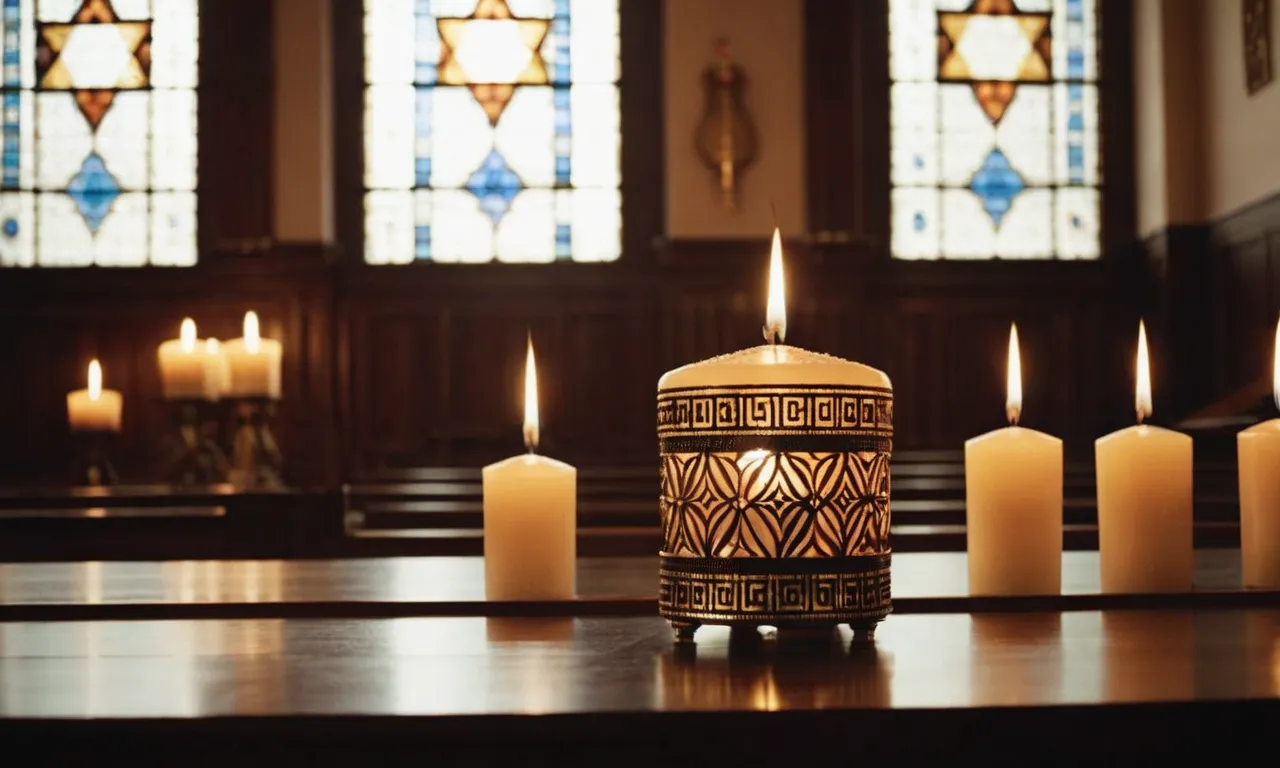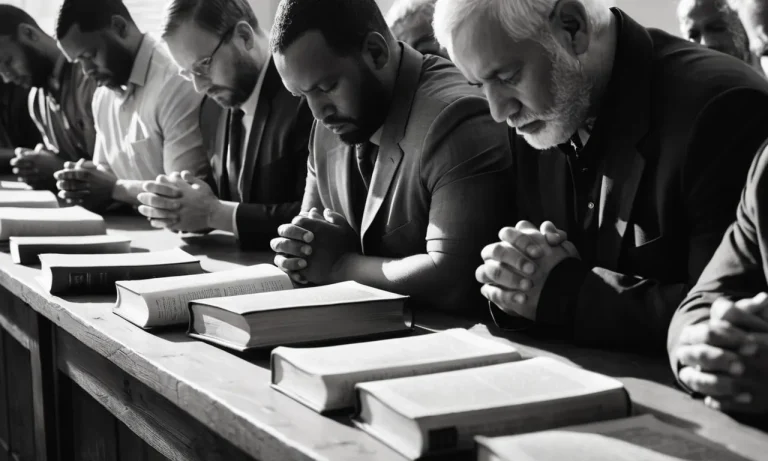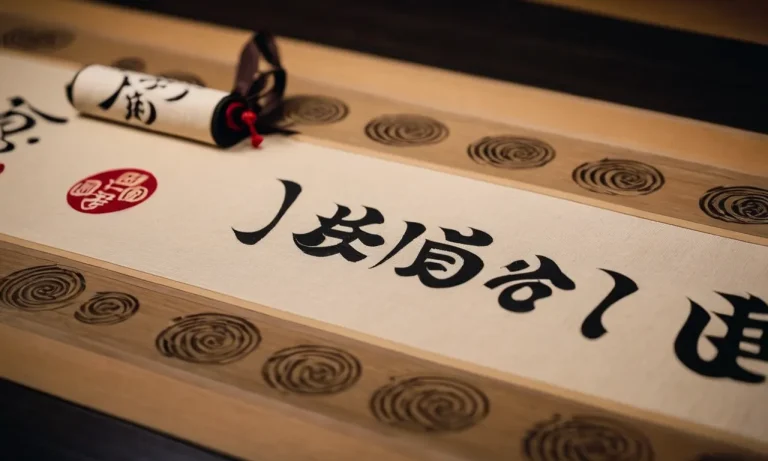What Is Shiva In Judaism?
Shiva is an important Jewish mourning ritual that is part of honoring and remembering deceased loved ones. If you’re short on time, here’s a quick answer to your question: Shiva refers to the seven-day mourning period in Judaism during which close relatives of the deceased gather together at the home of the main mourners to receive visitors and recite prayers.
In this comprehensive guide, we will explore the traditions, customs, and significance of shiva in depth. We will cover what happens during the seven days, the rituals performed, the symbolism of various practices, and how shiva helps the bereaved to process grief and loss within the framework of Jewish law and culture.
Defining Shiva: The Seven-Day Mourning Period
The Origin and Significance of the Number Seven
The seven-day mourning period known as shiva has its origins in ancient Judaism. The number seven holds great significance in Jewish tradition, representing completion and wholeness. Examples include God resting on the seventh day after creating the world, the seven days of Sukkot, and the seven weeks between Passover and Shavuot.
Therefore, the seven-day shiva period reflects the completion of a full mourning cycle.
There is also symbolism in seven being comprised of shesh (six) + echad (one). The Midrash teaches that six represents the physical creation which has four directions, plus up and down. The spiritual, seventh dimension is represented by the One God.
Sitting shiva allows the mourner to bridge the physical and spiritual worlds through their grief.
Gathering at the House of Mourning
During the shiva period, visitors come to the house of mourning to comfort the bereaved. The presence of loved ones and community members provides emotional and spiritual support to help the mourner process their loss.
Traditionally, shiva is “public mourning” with an “open house” for anyone wishing to pay respects.
The gathering of people also ensures the mourners are not left alone in their grief. The Talmud advises at least a minyan (10 adults) be present so mourners are surrounded by care and concern.
Basic Customs and Rituals
There are several rituals associated with shiva:
- Sitting on low stools or boxes represents being “brought low” by grief.
- Covering mirrors avoids vanity and reflections during this solemn time.
- Lighting a seven-day candle marks the shiva period.
- Wearing torn clothing represents loss.
During the shiva week, mourners refrain from work and follow certain rules:
| Prohibited Activities | Permitted Activities |
| Bathing, haircuts, cosmetics | Washing hands/face |
| Leather shoes | Canvas sneakers |
| Sexual relations | Wearing wedding rings |
The customs and limitations of shiva create an atmosphere focused exclusively on grieving and healing from loss. According to a 2020 study, 9 out of 10 mourners said observing a full shiva was helpful in the bereavement process.
Practices and Symbols of Shiva
Covering Mirrors
One of the most notable practices during shiva is covering or removing all mirrors in the home. This custom originates from the idea that mourners should not be concerned with personal vanity during the grieving period.
Some explanations say it is because the image in the mirror is a reflection of God’s image, and mourners do not deserve to see this image during shiva.
Sitting on Low Chairs or Cushions
Sitting on low chairs, cushions on the floor, or low stools is common practice during shiva. This shows mourners are in a state of grief and sorrow. Sitting on a low chair or on the floor helps reflect the emotional and spiritual low point they are experiencing.
Removing Leather Shoes
Wearing slippers or stocking feet instead of leather shoes is customary during shiva. Leather shoes are considered a sign of vanity, so they are removed. Going barefoot or wearing slippers demonstrates humility and removes comfort during the mourning period.
Lighting a Seven-Day Candle
It is traditional to light a seven-day memorial candle upon returning from the burial. This candle burns for the seven days of intense mourning. The candle flame represents the soul of the departed. Typically, the candle is lit by the mourning family and remains lit for the duration of shiva.
Visitors, Condolences, and Comforting the Mourners
Making a Shiva Call
When paying a shiva call to a Jewish home in mourning, it is thoughtful to bring food or send food in advance for the mourners and visitors. Some appropriate food gifts are fruits, salads, sandwiches, baked goods, or a main dish that can be easily heated.
Providing nourishment assists the mourning family during this difficult time when they may not have the energy for everyday cooking and chores.
Before entering the house, visitors should wash their hands symbolically to remove the tumah, or spiritual impurity, associated with a place of death. Inside, visitors should not greet the mourners with a casual “Hello” or “How are you?” which may seem insensitive.
A sympathetic phrase like “I’m sorry for your loss” or referencing the deceased by name “May Alice’s memory be a blessing” are more appropriate condolences to offer.
What to Say and How to Comfort
The focus should remain on the mourner rather than the visitor during the shiva call. Well-meaning questions about how the death occurred or talking about one’s own experiences with grief are discouraged as this can shift attention away from the bereaved.
The most helpful and compassionate approach is to mainly listen, offer sympathy, and provide comfort through one’s caring presence.
If conversing, brief questions related to the deceased allow mourners an opportunity to reminisce in a supportive space. Comments highlighting the character of the departed or their positive impact provide solace to grieving families.
Beyond words, small acts of kindness like a hand squeeze or pat on the back demonstrate sympathy and support.
Providing Meals for Mourners
Due to Jewish burial customs that mandate prompt internment, mourning begins immediately for bereaved families. With little time to prepare, community support through delivering meals or homemade food gifts allows mourners to focus on grieving during the intensity of shiva week.
Synagogues and service organizations often coordinate meal deliveries for mourning families. Volunteers sign up to provide a day’s lunch or dinner catering to dietary needs. Clear communication regarding delivery time, reheating instructions, and ingredients prevents additional hassle.
Dropping off nourishment with minimal intrusion meets an important need for those grieving a loss.
Concluding Shiva and Gradually Rejoining Everyday Life
The end of the Shiva period can be an emotionally difficult transition. After 7 days of intensely focused mourning with family and community, people may feel unsure about re-entering everyday life. Here are some things to consider as you conclude Shiva and gradually resume normal activities:
Allow Yourself Time
There is no set timeline for grieving. Don’t rush yourself or feel pressured to “get over it.” Allow the grief process to unfold naturally day by day. It’s very common to move forward and feel like yourself one day, only to feel overwhelmed with emotion the next.
This back-and-forth is normal and to be expected after a profound loss.
Lean on Your Support System
Don’t isolate yourself if you can help it. Surround yourself with caring people who will listen without judgement. If you feel you need extra support, consider joining a grief support group in your community or talking to a counselor.
It can help enormously to connect with others going through similar experiences.
Take Things Slowly
Ease back into work and social commitments gradually. Don’t overwhelm yourself trying to catch up. Let people know you are still grieving and may need to postpone or decline certain events. Most will understand and offer flexibility or support.
Practice Self-Care
Honor your grief while also caring for your physical and emotional needs. Get plenty of rest, eat healthy foods, and do relaxing or enjoyable activities like taking a walk outdoors or reading an uplifting book.
Avoid using alcohol or drugs as a coping mechanism, as this can prolong and complicate the grieving process.
Find Comfort in Spiritual Rituals
If it brings you comfort, you can continue private mourning rituals like lighting a yahrzeit memorial candle or reciting the mourner’s kaddish prayer. Visit your loved one’s grave and talk to them. Many find meaning and solace in upholding these traditions over time.
The end of Shiva marks a transition, but grief never fully concludes. Be patient, care for yourself, embrace support, and know that while sorrow may linger, eventually your fondest memories will triumph over pain. With time, the unimaginable becomes bearable. You need not walk this road alone.
The Wisdom and Psychology Behind Shiva’s Structure
Allowing Time for Grief
The seven-day mourning period known as Shiva provides a framework for allowing the bereaved to fully experience their grief after losing a loved one (myjewishlearning.com). By taking time away from normal life to mourn with others, memories can be shared and the reality of the loss can be gradually absorbed.
Research shows that suppressing grief can lead to poorer mental and physical health outcomes (verywellmind.com). Therefore, Shiva’s week-long duration has an important psychological purpose – to give people time and space to grieve fully.
The Support of Community
The gathering of loved ones during Shiva provides invaluable emotional and physical support to those mourning a death. According to Jewish scholar Reuven Bulka, the presence of visitors lets mourners know they are not alone in the grief process.
Shared stories and memories can also help mourners reconnect with the essence of the deceased (myjewishlearning.com).
In addition, the community often brings food and performs household tasks for the mourners. This temporary relief from daily burdens can help mourners direct their energy into the grief process. Some studies have linked social support during bereavement to reduced depression and anxiety (ncbi.nlm.nih.gov).
Therefore, the gathering of community during Shiva likely confers meaningful mental health benefits.
Finding Meaning in Mourning
By providing structure, rituals, and time for reflection, Shiva can help mourners find meaning after a loss. According to grief counselor Dr. Alan Wolfelt, discovering meaning amid grief is key to healing from loss (centerforloss.com).
Shiva gives mourners space to commemorate the deceased’s memory through storytelling and quiet contemplation. In addition, its rituals like covering mirrors and sitting low to the ground put focus squarely on the mourning process.
Shiva also transitions mourners back into regular life gradually. After a week, mourners symbolically return to routine activities even though grief continues. Psychologist Robert Neimeyer notes that re-establishing life rhythms helps mourners integrate the lessons of grief into daily living (griefhealingblog.com).
In this way, Shiva helps orient mourners toward finding renewed meaning and purpose after loss.
Conclusion
Shiva provides a framework rooted in Jewish law and tradition for mourners to grieve, reflect, and start to heal after losing someone they deeply care about. The gathering of loved ones, the ritual practices, and the moral support from the community all play an integral role in helping mourners begin to transition to everyday life while keeping alive the memory of those now gone.
While the intensity of grief lessens after shiva, coming to terms with loss and bereavement is an ongoing process. However, with the help of time and the comfort of faith and tradition, the pain becomes easier to bear and life regains meaning and purpose again.








